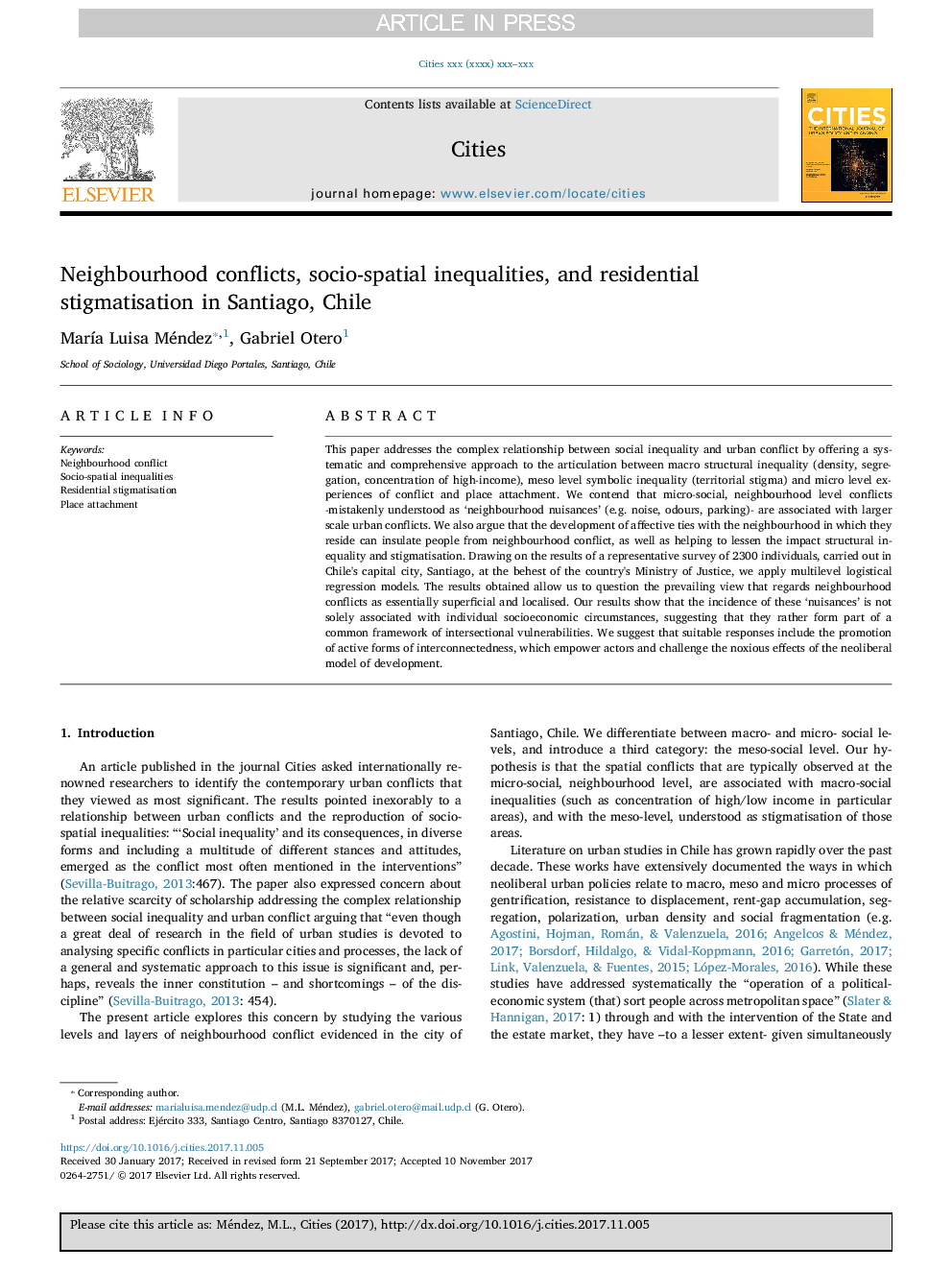ترجمه فارسی عنوان مقاله
درگیری های همسایگی، نابرابری های اجتماعی-فضایی و محرومیت های مسکونی در سانتیاگو، شیلی
عنوان انگلیسی
Neighbourhood conflicts, socio-spatial inequalities, and residential stigmatisation in Santiago, Chile
| کد مقاله | سال انتشار | تعداد صفحات مقاله انگلیسی |
|---|---|---|
| 130879 | 2018 | 8 صفحه PDF |
منبع

Publisher : Elsevier - Science Direct (الزویر - ساینس دایرکت)
Journal : Cities, Volume 74, April 2018, Pages 75-82
ترجمه کلمات کلیدی
مناقشه همسایه، نابرابری اجتماعی و فضایی، خشونت خانوادگی، پیوست محل
کلمات کلیدی انگلیسی
Neighbourhood conflict; Socio-spatial inequalities; Residential stigmatisation; Place attachment;

